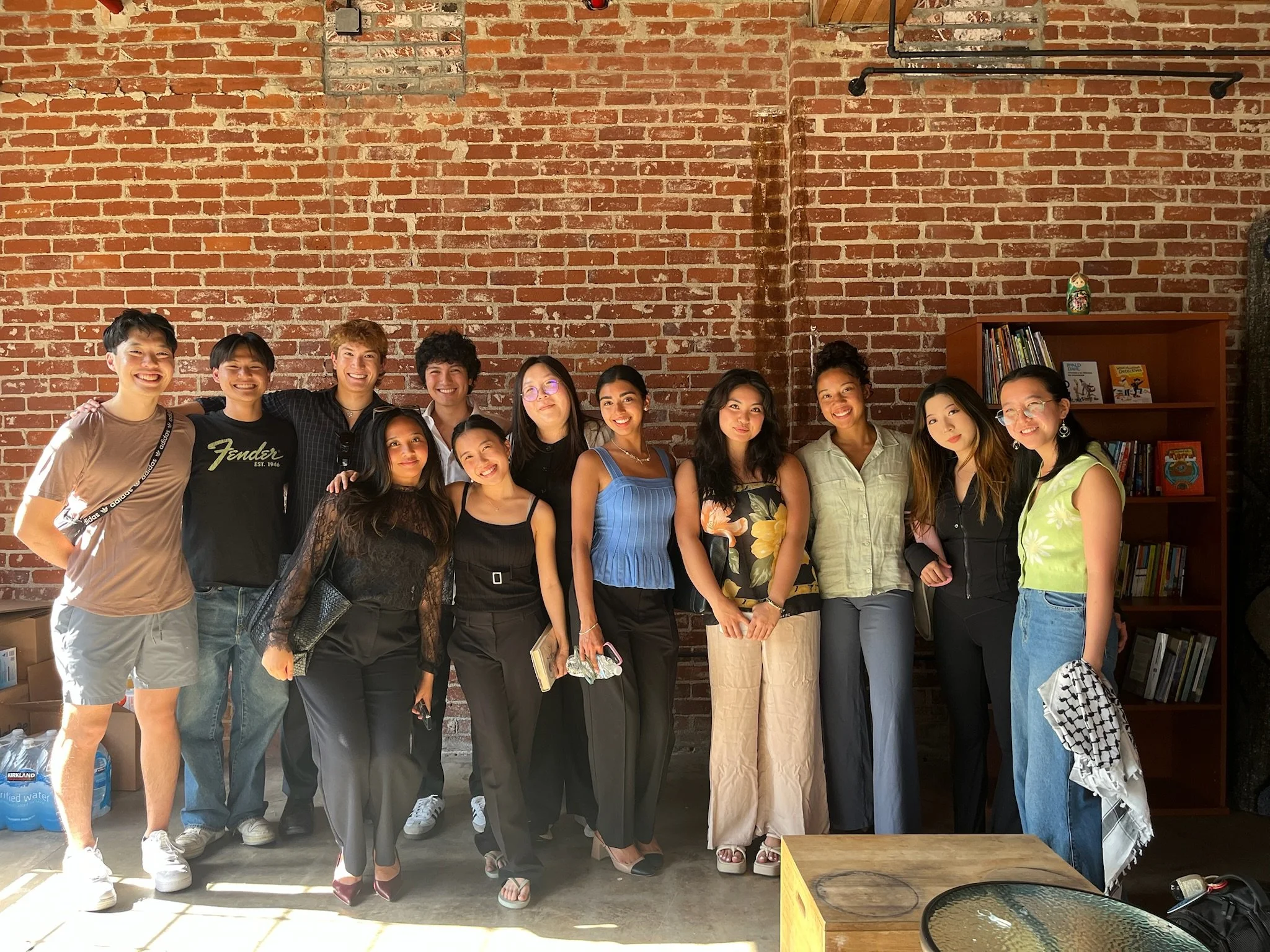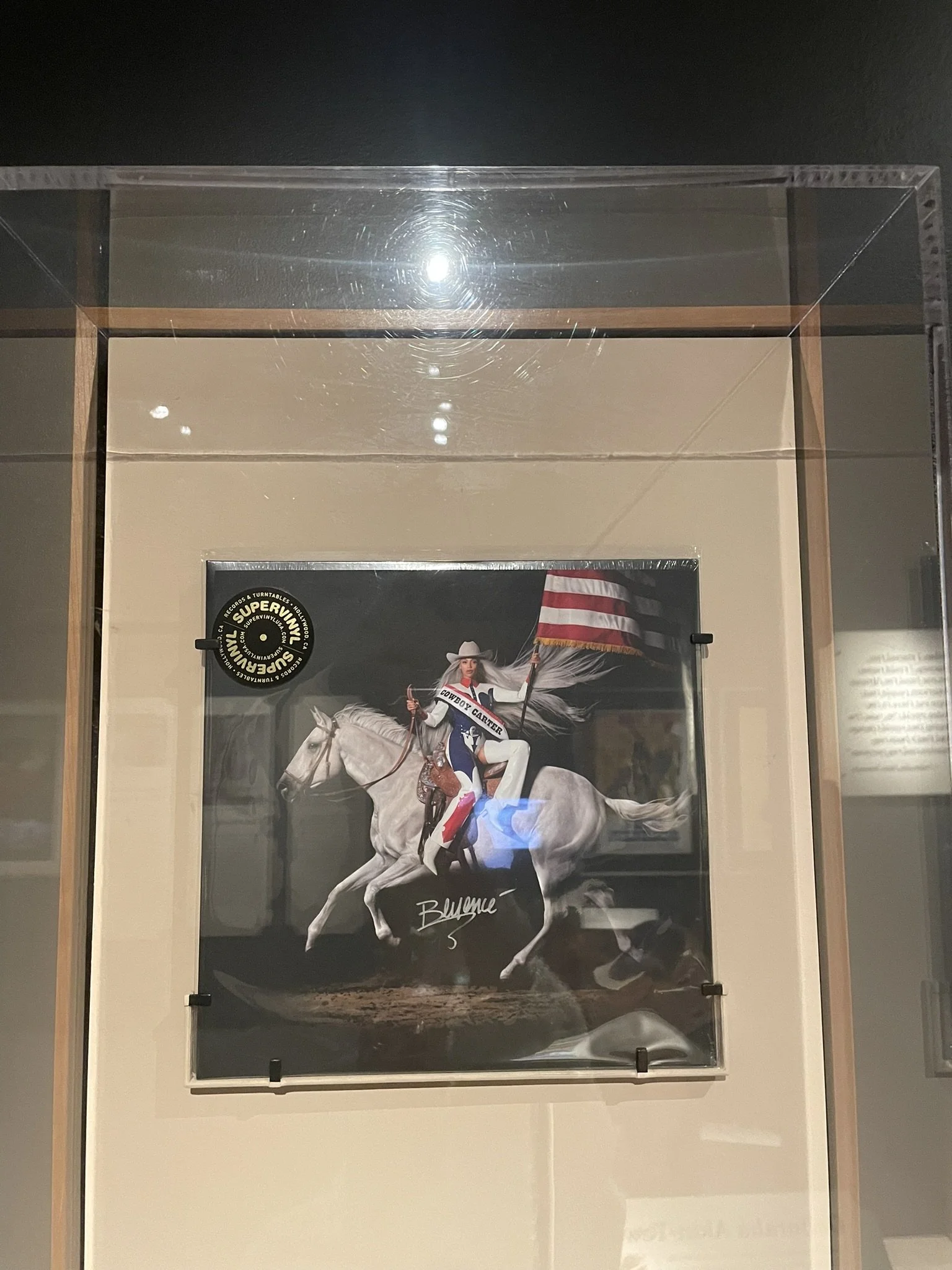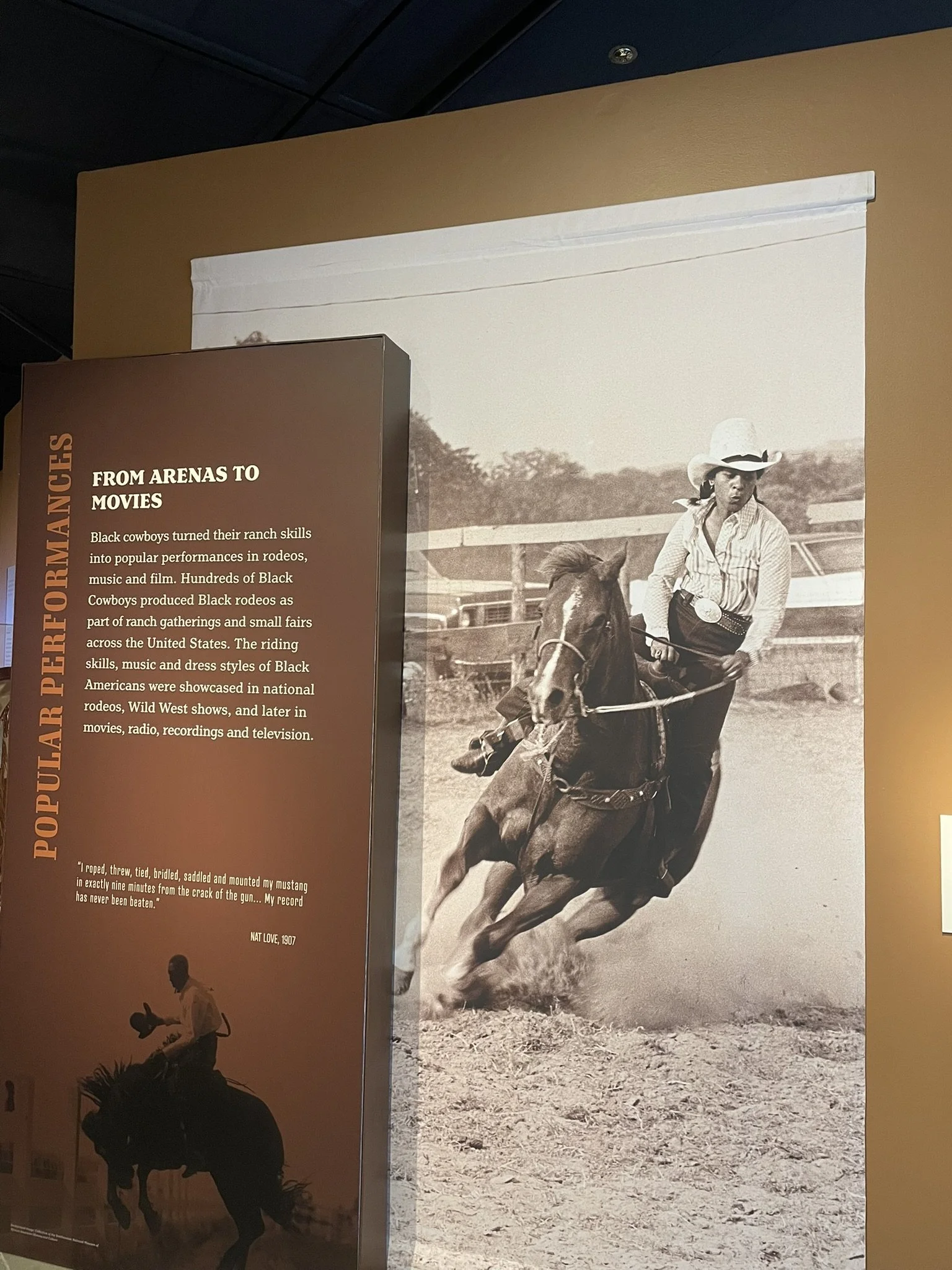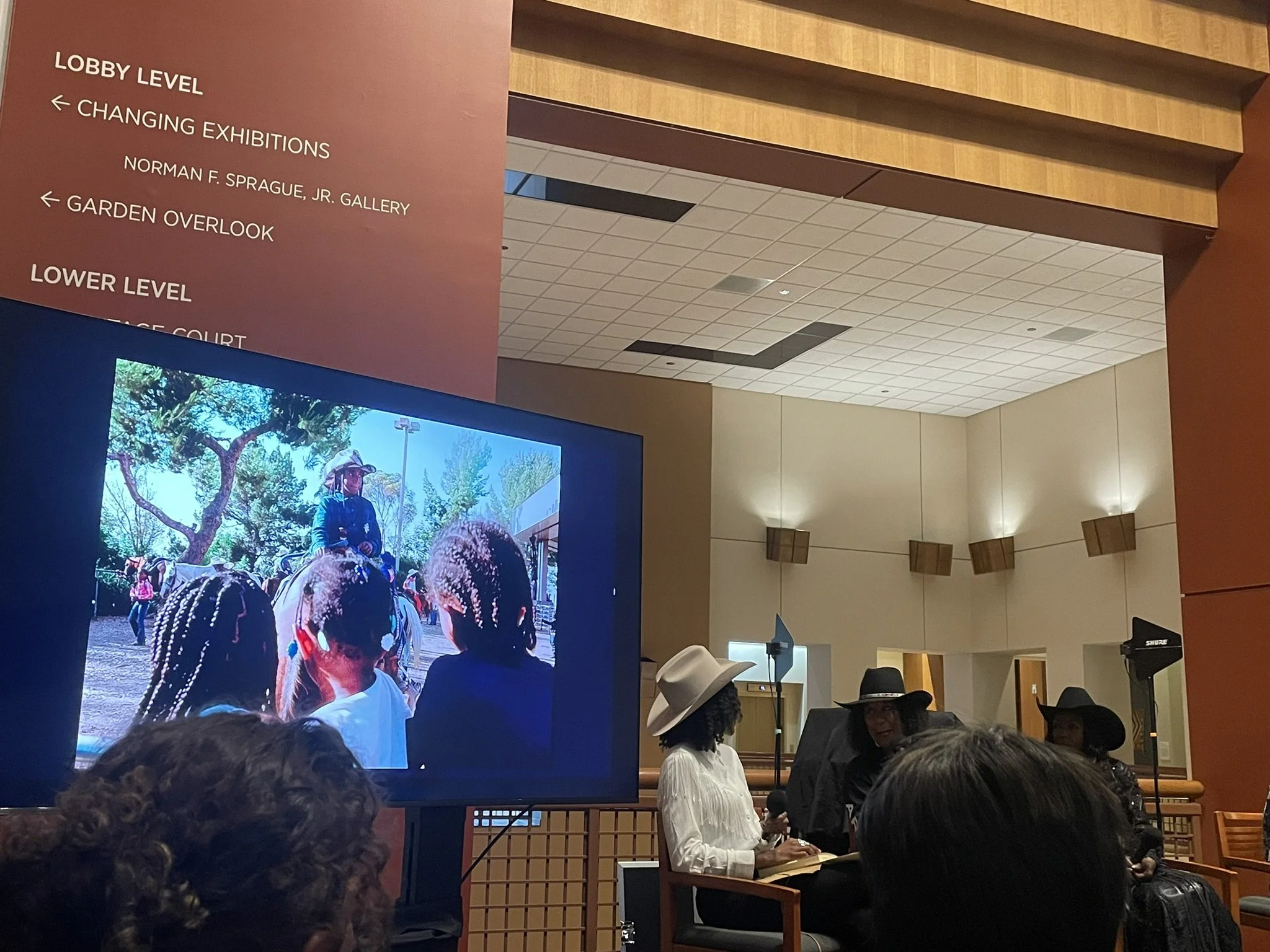By Natalie Glezen, 2025 CLA Intern
In June, I attended two Los Angeles community events: a Community Care and Decompression Event by Midnight Books Los Angeles and “Rodeo Rising: Celebrating Black Women Athletes” at the Autry Museum in Griffith Park. I chose the Rodeo Rising event because I was intrigued by the Los Angeles equestrian community and how it emerged in a city known better for freeways than farms. In the immediate aftermath of protests against immigration raids, I attended the Community Care event with my cohort to discuss our experiences, feelings, and how to support our communities from here.
In honor of Juneteenth, the Autry hosted a discussion with trailblazing women in rodeo: DeBoraha Townson, champion and founder of Townson Ranch; Margo Wade LaDrew, creator of the Soul Country Music Star Competition; and youth champions Jiyah and Jaelah of the Blue Bird Riders. The panel was moderated by Lauren E. Banks, actress and rider in Netflix’s upcoming Lawmen: Bass Reeves.
These women shared their experiences creating competition and performance opportunities for Black riders across the country. I learned that in the 20th century, Black migrants from Texas and the South brought cowboy traditions to California, where they developed new urban cowboy cultures focused on self-reliance and equality. California performers and entrepreneurs helped preserve Black cowboy history through family stories, films, parades, country music, horseback riding, and rodeos. They also highlighted the Compton Cowboys, a group from Richland Farms teaching horseback riding and equestrian culture to youth. I was fascinated by how rich the history of Black cowfolk is, and how these women are helping more people learn about the rider community in Los Angeles.
Two key takeaways from these events were the importance of community and perseverance. Towson and LaDrew shared that continuing the legacy of Black cowfolk takes collaboration and strong community support. Youth like the Blue Bird Riders are inspiring others by sharing their experiences traveling across the country to compete. Connecting the panelist’s stories with my advocacy work, it reminded me of the critical role youth play in continuing civic engagement in Los Angeles’ AANHPI communities. Moreover, it reminded me that showing up for other communities is essential before expecting support in return.
I learned from the Community Care event that to help others, I also need to check in with and take care of myself. Before our discussion, the host led a meditation called the “Seven Homecomings,” where we visualized our ancestors, mentors, and sources of wisdom like songs, books, and media entering the space. It was interesting to picture my support system and the music, books, and quotes that keep me going as an advocate. It was healing to be in an informal space with my cohort and other community members, many of whom had friends or family directly impacted by immigration raids. The event made me think about the broader role of civic engagement and how, during hard times, it’s important to make space for rest, reflection, and joy.




The views and opinions expressed in this publication are those of the author and do not reflect the views or positions of CAUSE or the CAUSE network.
The CAUSE Leadership Academy (CLA) for students is a nine-week, paid, internship program that prepares college undergraduates to lead and advocate for the Asian Pacific Islander community on their campuses and beyond.
